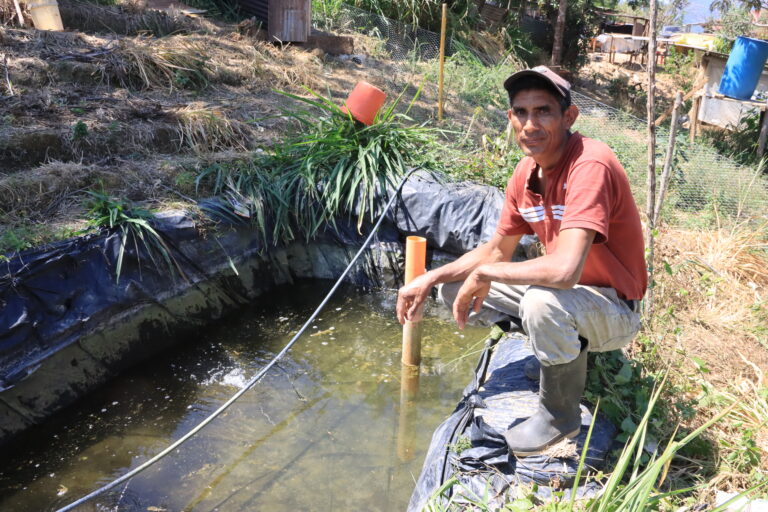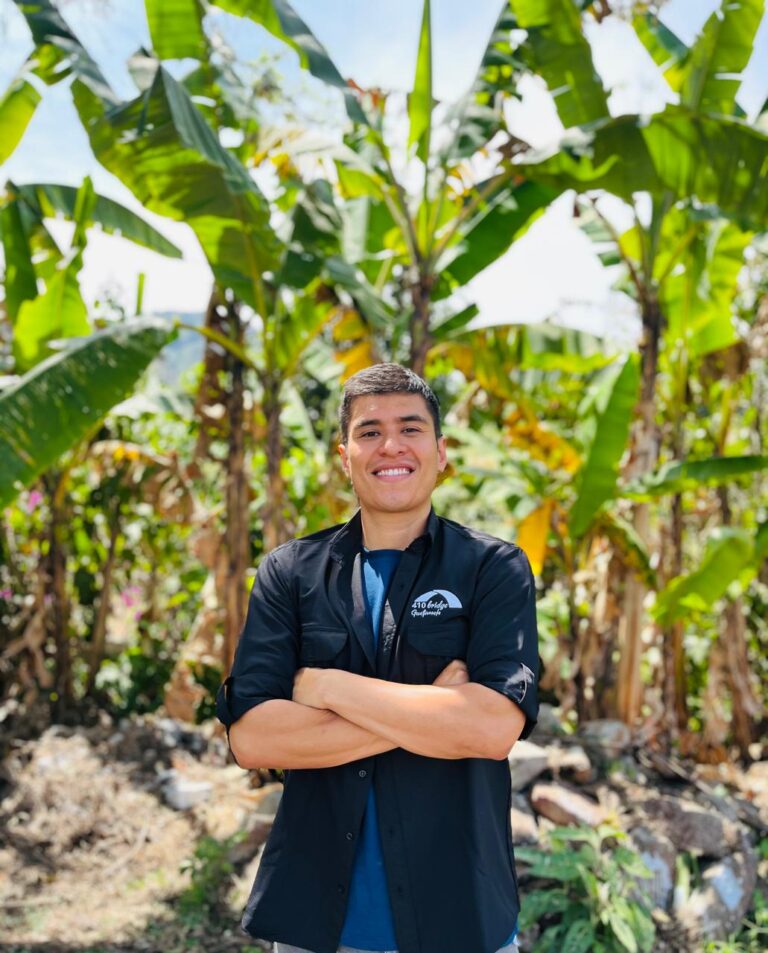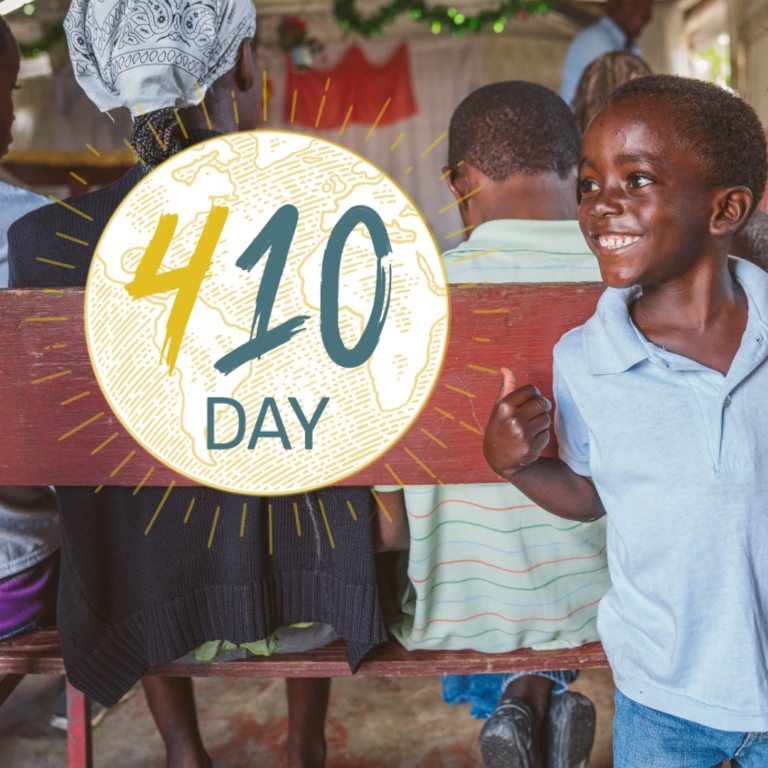I met a super-cool high-schooler several years ago. Her name is Jaime Colman. Jaime is a world-changer. Her church – Parker Hill CC – was one of 410’s first community partners in Kenya. Jaime visited Karogoto and has stayed connected ever since.
She’s in college now and contacted me several weeks ago to see if she could visit Karogoto this summer (on her own) to continue a research project on people with disabilities. Her familiarity with Karogoto…. their familiarity with her…. and the relationships she’s built up over the years made it possible.
Here’s a portion of her story from a week in Karogoto. It’s a little long, but take a moment.
Kurt

Hi all—
Here’s the latest Kenya update! (It’s long, so if you don’t want to read it all definitely catch the last 3 paragraphs).
This week I have the privilege of staying “up-country”, as the Nairobi city-folk call it, in Karatina while visiting the community of Karogoto. Karogoto is a place that is familiar and special to me in many ways. It has been two years since my last visit here and I consider my time here a precious gift.
The community has really taken its own initiative in the development projects that are going on and there is much ownership seen in that. A new knitting facility for a micro-enterprise for the women is almost completely built and the council of the community is working on the planning of various water tanks throughout the 8 sub-villages that make up the community of Karogoto.
I am here visiting with friends and continuing my research on the experience of a person with a disability. Monday I spent the morning in a special education classroom at the local primary school. In this classroom there are 2 autistic children and 9 children with down syndrome. 4 of them are orphans who live with their grandparents that do not understand their mental challenges well. The ages in this class range from 6-20 years old. The teacher shared with me stories of malnutrition, neglect, sexual abuse, and dependency. The goal of this class is to integrate the children into the community. There is no formal education given because the government has not provided the necessary resources and training. Some of these students do not even know if they are male or female. The teacher would love to see vocational training done for these students because all of them will be economically dependent their whole lives. Of the 11 students only 2 can communicate well. One of the autistic boys really grabbed my attention. He has a collection of bottle caps and he knows when you’ve switched what containers they are in. He cannot talk, but he loves to sing. I asked him to teach me a song and these are the lyrics of it: “I am in the race, I am going back to my Father. No more turning back. I am in the race to my destiny.” Touch is an important sense to him, so we became “beep” buddies. We would sporadically touch each other’s nose and say, “beep.” He loved it! I like the study of anthropology and one of my favorite anthropological quotes is: “Everyone knows a lot about something.” By the world’s standard these children are not smart. Spend a day with them and I trust you will think differently.
I have been in about 13 homes of persons with a disability. Challenges include people who are blind, have a mental illness, a physical impairment, etc. The way the interviews have been carried out have been extremely informal and very much like a conversation. Some chats have been on the side of a road while a man herds his cattle, others with women while they light a fire to make chai (tea). A common theme has been on trust, reliance, and dependence on the Lord. These people know Him as a provider of every little thing and genuinely praise Him for a new day or for a cup of milk from a neighbor. God uses His children to provide for His children.
The council of Karogoto is composed of various pastors and well respected women from the community. They have been the ones showing me to these homes and translating the Kikuyu language for me. They are almost having too much fun with the interviews. It’s gotten to the point where any old woman with a cane that we pass on the road we stop and ask about her need for a cane. The pastors have also thrown in their own questions during the interviews. In one of the interviews today, I think I only asked two questions—the rest had already been asked. Starting off today our team consisted of 3 of us, but as we walked to the first house we had a “Chicken Little” scene when 2 community members joined up with us. It is good and fun to have community members integrated in these conversations.
The last home we went to visit today was the home of a mentally and physically challenged little girl. When we arrived the child was inside wailing and after we knocked on all of the doors we realized that the mother was not home. The child was locked away. The women on the council explained to me that this little girl is 10, but no one knew about her until 2 years ago because she has been kept hidden. 1 year ago her father passed away, so her mother is having a difficult time caring for her, her other children, and their large farm. Often times when the mother has to care for other responsibilities the child is just locked away for the day. There was nothing we could do. We couldn’t unlock the door; we couldn’t say anything to make the child stop crying. And so we grudgingly walked away as her cries followed us down the street.
We ended up in the home of a woman on the council. There is a two year old girl named Hope who came and sat on my lap. I smiled to myself at the name in light of everything that we just saw and heard. Hope did not say much, but she kept me warm on a cold, cold day and she just watched as dinner preparations were carried out. Her presence was not strongly felt, but simply knowing that she was there brought joy. I realized that in the situation we had just left the presence of hope is not strongly felt for that family, but it is there keeping that child warm, watching her, and in that she can find daily joy. Does that make her situation okay? No. Will it and should it continue to break me a thousand times over? Yes. But, in that brokenness, in that mess there is Hope and I rest secure knowing the One they rest secure in.
On my way back home tonight one of the pastors informed me that a local group for persons with disabilities has been planning for the past several months on meeting at one of the churches in Karogoto on Friday. We both chuckled at God’s timing and way in that. Neither of us find it a coincidence that I happen to be here for this. It was another confirmation for me that I am where I am supposed to be, with whom I am supposed to be with, doing what I am supposed to be doing.
The people of Karogoto are continually teaching me lessons far beyond this world.
By the end of my time in Karogoto we visited 24 homes of a person with a challenge or disability. Some stories were more difficult to swallow than others. It was great, great to have the council involved in these conversations and I am continually impressed with how well the leaders of the community know the people in the community. Also, some community members tagged along in these conversations and I saw one of them, Ann Wangu, be changed as well. You could tell her eyes were opened and her heart was softened. That was confirmed at the end of the week when she saw a man in a wheelchair struggling to maneuver, she ran over and helped him get where he needed to go.
Friday there was a forum held for persons with a disability at the Antioch Church. This was something a member in the community had been planning months prior and Pastor James and I did not find it a coincidence that I happened to be around for it. An organization called United Disability Empowerment of Kenya (UDEK) came and taught on human rights, rights of persons with a disability, and how to vote. There were about 26 people that showed up for this forum–mainly those with a physical challenge. Of the 26 only 1 of them were of the 24 I had interviewed. At the end the organization evaluated the each person. I spoke with the woman in charge named Lucy. She said the organization lends persons with a disability money to start a project which that person then pays back with a small interest. She said in the extreme cases that they find they grant 4,000KSH per month from the government with no need to pay them back. Of course the extreme cases did not show up for the forum held Friday. I am hoping to have a phone conversation with Lucy before I leave Friday to understand what the organization does better and to advocate 2 extreme cases I came across in my interviews. All in all, the forum was a good step in the right direction and the fact that a community member initiated it I think speaks volumes.
Two of the hardest things:
1. In East Africa there is often a generalization that a mzungu (white person) has money. They see white skin, they see money. It was difficult to walk into these homes and to lay aside the expectation that something tangible would come out of our time together. As an American it is also hard to hear these things and try not to “solve the problem” right on the spot. We can’t. And by doing so our help might actually turn toxic in a community working so hard to self-develop.
2. Some of the stories were difficult to hear and broke me at points. Being on my own to process was a challenge, but journals are good!
I have a tremendous amount of respect for The 410 Bridge and the leaders of the community. I met with all of the pastors throughout the week and was introduced to some of the women now involved as well. There is a vast difference between being a Christian man and a man of God–Pastor James Mwangi (410 Bridge Community Coordinator) is a man of God. His patience and the way he handled the interviews throughout the week eased a lot of awkward cultural moments and made the conversations comfortable for everyone involved. He threw in a lot of his own questions as well, that showed he was learning and wanting to learn as well.
With feet covered in ochre soil, a face dripping with rain, and a heart steeped in Hope…
Jaime




